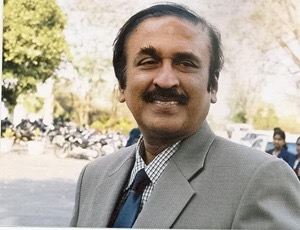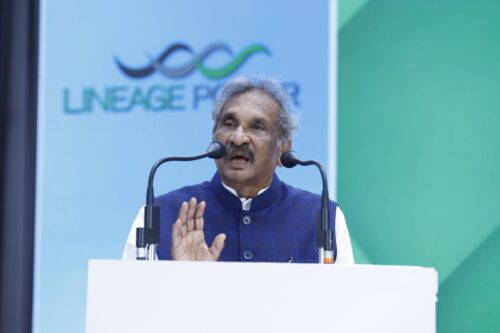GUEST COLUMN: Dr N Prabhudev
Bengaluru Express
Bengaluru, Sep 16: Why we should exercise – and why we don’t? Exercise is looked upon as a cornerstone of good health, with benefits ranging from improved heart function to enhanced mental well-being. Daily Walk – 7000 to 10,000 steps can add 7 Years to Your Life – the European Society of Cardiology Congress – triggers an anti-aging process that repairs old DNA. Walking is a super food.
The real reason we don’t exercise is to avoid any experience of discomfort. No time, too busy, no motivation, stay in the comfort zone, Knowledge Gaps about Exercise Basics etc. Exercise is not uncomfortable! Exercise is Euphoric! key is consistency rather than perfection.
Average -1 Mile = 2,000 steps and 100 calories burned! Walk at a pace of 4 miles per hour- you can burn roughly 400 calories per hour. A brief walk or stroll post dinner is a lifestyle upgrade you must consider! Enjoy the quietness of the night, the pleasant weather, and your family’s company- supports the body’s natural sleep-wake cycle and makes it easier to fall asleep and fall into a deeper slumber.
How much is too much? What is a safe zone?
A single exercise session may protect the cardiovascular system for two to three hours – 30 minutes a day is the sweet spot for nearly maximal health protection.
• Your maximum heart rate at exercise should not exceed the number- – 220 minus you age. If you are 50yrs. max heart rate should be 170 per minute.
• Moderate intensity – 50%to70% of your max heart rate is safe in majority of cases
If some exercise is good, more must be better – No, Not really! Too much exercise can be harmful, and may cause cardiac hypertrophy or even sudden cardiac death.
High-intensity interval training – This type of training gets and keeps your heart rate up and burns more fat in less time. A high-intensity workout increases the body’s need for oxygen during the effort and creates an oxygen shortage. Results in elevated blood lactate and hypoxic metabolism leading to fatigue and collapse! This happens only if your heart rate consistently remains above the 75% of your safe heart rate!
Research has linked long-term, vigorous exercise to higher levels of a protein associated with heart muscle damage and irregular heartbeats – often degenerates into cardiac arrest. People who smoke, and have hypertension and elevated triglycerides are more prone!
Yes, you can exercise after a heart attack. You CAN and SHOULD exercise to improve both your heart function and general health. The time it takes to get back to exercise after a heart attack will vary from person to person, but you can generally get moving within a day or two after surgery or angioplasty – 5 to10 minutes at a time. Regular exercise training helps improve the heart muscle’s ability to use oxygen. Exercise can minimize your risk of having a second heart attack.
Take away message
• Eat with Heart in Mind! Lose the Abdominal and visceral adipose tissue
• Be large Hearted. Do not have an enlarged heart!
• Maintain a healthy weight.
• Quit smoking and Limit your drinks
• Be stress free
• Set up a sleep schedule
• Control Diabetes and hypertension
A walk, a run, one stretch, one squat, or one dance move at a time—and the journey will be worth every ounce of effort!Regular exercise is essential for health, but more isn’t always better!
GUEST COLUMN: Dr N Prabhudev
Bengaluru Express
Bengaluru, Sep 16: Why we should exercise – and why we don’t? Exercise is looked upon as a cornerstone of good health, with benefits ranging from improved heart function to enhanced mental well-being. Daily Walk – 7000 to 10,000 steps can add 7 Years to Your Life – the European Society of Cardiology Congress – triggers an anti-aging process that repairs old DNA. Walking is a super food.
The real reason we don’t exercise is to avoid any experience of discomfort. No time, too busy, no motivation, stay in the comfort zone, Knowledge Gaps about Exercise Basics etc. Exercise is not uncomfortable! Exercise is Euphoric! key is consistency rather than perfection.
Average -1 Mile = 2,000 steps and 100 calories burned! Walk at a pace of 4 miles per hour- you can burn roughly 400 calories per hour. A brief walk or stroll post dinner is a lifestyle upgrade you must consider! Enjoy the quietness of the night, the pleasant weather, and your family’s company- supports the body’s natural sleep-wake cycle and makes it easier to fall asleep and fall into a deeper slumber.
How much is too much? What is a safe zone?
A single exercise session may protect the cardiovascular system for two to three hours – 30 minutes a day is the sweet spot for nearly maximal health protection.
• Your maximum heart rate at exercise should not exceed the number- – 220 minus you age. If you are 50yrs. max heart rate should be 170 per minute.
• Moderate intensity – 50%to70% of your max heart rate is safe in majority of cases
If some exercise is good, more must be better – No, Not really! Too much exercise can be harmful, and may cause cardiac hypertrophy or even sudden cardiac death.
High-intensity interval training – This type of training gets and keeps your heart rate up and burns more fat in less time. A high-intensity workout increases the body’s need for oxygen during the effort and creates an oxygen shortage. Results in elevated blood lactate and hypoxic metabolism leading to fatigue and collapse! This happens only if your heart rate consistently remains above the 75% of your safe heart rate!
Research has linked long-term, vigorous exercise to higher levels of a protein associated with heart muscle damage and irregular heartbeats – often degenerates into cardiac arrest. People who smoke, and have hypertension and elevated triglycerides are more prone!
Yes, you can exercise after a heart attack. You CAN and SHOULD exercise to improve both your heart function and general health. The time it takes to get back to exercise after a heart attack will vary from person to person, but you can generally get moving within a day or two after surgery or angioplasty – 5 to10 minutes at a time. Regular exercise training helps improve the heart muscle’s ability to use oxygen. Exercise can minimize your risk of having a second heart attack.
Take away message
• Eat with Heart in Mind! Lose the Abdominal and visceral adipose tissue
• Be large Hearted. Do not have an enlarged heart!
• Maintain a healthy weight.
• Quit smoking and Limit your drinks
• Be stress free
• Set up a sleep schedule
• Control Diabetes and hypertension
A walk, a run, one stretch, one squat, or one dance move at a time—and the journey will be worth every ounce of effort!






More Stories
Dubai Firms Express Keen Interest in Karnataka’s International Job Fair 2026
Reliable Electricity Supply a Priority, Link Line Works to Be Accelerated: Energy Minister K. J. George
Uber Proposes ‘Driver-Cum-Tourist Guide’ Training Initiative for Karnataka